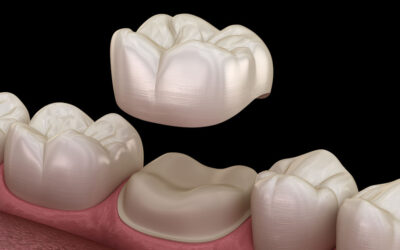We’ve seen countless cases of wisdom teeth causing discomfort and health issues in patients at our Murrieta dental practice. Wisdom teeth, or third molars, are the last set of teeth to develop and typically appear in your late teens or early twenties. While some people never experience any problems with their wisdom teeth, for others, these teeth can lead to a host of issues, necessitating their removal. Today, I want to share the key wisdom teeth removal signs and wisdom teeth symptoms that might indicate your third molars need to be removed, helping you avoid further complications and discomfort.
1. Pain in the Jaw and Mouth: A Common Wisdom Teeth Symptom
One of the most common signs that your wisdom teeth could be causing problems is pain in your mouth and jaw. This pain can vary; you might feel a sharp pain indicating impacted wisdom teeth or a dull, throbbing ache that seems to come and go. Sometimes, the pain can even radiate towards the ear or cause an intense headache. If you notice any persistent pain near the back of your mouth, it’s a good indicator that your wisdom teeth could be erupting improperly or becoming impacted.
2. Swelling of the Gums and Jaw
When wisdom teeth struggle to break through the gums, they can cause significant swelling and tenderness in the affected area. You might notice that your gums are red, swollen, or feel unusually tender when you touch or brush them. Swelling can also extend to the jaw, giving your face a slightly puffed appearance. This swelling not only causes discomfort but can also make it difficult to eat or speak normally.
3. Infection and Gum Disease from Impacted Wisdom Teeth
Partially erupted or impacted wisdom teeth often lead to infections such as pericoronitis in the mouth, particularly if they’ve only partially erupted through the gum line. This partial eruption creates a flap of gum tissue that can trap food and bacteria, leading to painful infections known as pericoronitis.
Symptoms of Pericoronitis
- Persistent bad breath: Unlike typical bad breath, this persists despite good oral hygiene.
- Unpleasant taste in the mouth: Often described as salty or metallic.
- Pus from the gum area: Visible oozing indicates a significant infection.
- Swelling and tenderness: The gum tissue around the wisdom tooth becomes swollen and painful to the touch.
Long-term Risks
- Periodontal disease: Continued infections can lead to gum disease, which might affect not only the wisdom teeth but also the health of nearby teeth and overall oral health.
- Spread of infection: If not treated, the infection can spread to the jaw, cheeks, and other parts of the face and neck.
- Jawbone damage: Chronic infections can lead to the deterioration of the jawbone, affecting dental health and facial structure.
4. Difficulty Opening the Mouth (Trismus)
If your wisdom teeth are impacted or infected, you might find it surprisingly difficult to open your mouth fully. This condition, known as trismus, can make everyday activities like speaking and eating increasingly uncomfortable. It’s caused by inflammation and muscle spasms in the jaw, which are common symptoms when wisdom teeth are problematic.
5. Damage to Adjacent Teeth
Wisdom teeth can crowd or damage adjacent teeth as they grow. This pressure can lead to misalignment of your other teeth or even cause damage to the second molars. If you start to notice your teeth shifting or if gaps begin to appear where they weren’t before, your wisdom teeth could be exerting pressure on your other teeth. Additionally, if you feel an unusual amount of pressure or pain in the teeth next to the wisdom teeth, this is a significant sign that they may need to be removed.
6. Cysts or Tumors
In rare cases, cysts or tumors can form around the impacted wisdom teeth. If left untreated, these growths can lead to significant damage to the jawbone and other teeth. Symptoms might include swelling and pain, but often, these cysts can grow without any immediate symptoms, which is why regular dental check-ups are so important.
7. Tooth Decay and Cavities
Partially erupted wisdom teeth are difficult to clean, which makes them breeding grounds for bacteria that cause tooth decay and cavities. If you find yourself frequently dealing with cavities around your wisdom teeth or if you notice a foul smell or taste, these could be signs that decay has set in, which could necessitate their removal to prevent further damage to your oral health.
8. Chronic Headaches
Problems with your wisdom teeth can also lead to chronic headaches. The pain from the jaw can extend to other areas of the skull, causing frequent, recurring headaches that seem to originate from the jaw or temples. If you’re experiencing persistent headaches and have yet to have your wisdom teeth removed, it might be worth discussing this with your dentist.
Common Myths and Misconceptions About Wisdom Teeth Removal
When it comes to wisdom teeth removal, numerous myths and misconceptions can lead to unnecessary anxiety and confusion. Let’s address some of the most common ones and set the record straight.
Myth: Everyone Needs to Have Their Wisdom Teeth Removed
Fact: Not everyone needs to have their wisdom teeth removed. If your wisdom teeth are healthy, fully erupted, positioned correctly, and do not cause any pain or dental problems, they can be left in place. Regular check-ups are essential to monitor their health and alignment.
Myth: Wisdom Teeth Removal is Extremely Painful
Fact: While some discomfort is expected after the surgery, modern dental techniques and anesthesia make the procedure itself pain-free. Pain management options, including medications and home care strategies, are available to help control pain effectively during recovery.
Myth: The Recovery Process is Long and Very Difficult
Fact: Recovery duration varies, but most people start to feel much better within a few days. Following your dentist’s post-operative care instructions can significantly reduce your recovery time. Complications are possible, but following guidelines can minimize risks. Understanding the wisdom teeth removal signs and addressing them promptly ensures a smoother and quicker recovery.
Myth: Wisdom Teeth Cause Crowding of Other Teeth
Fact: Recent studies suggest that wisdom teeth do not necessarily cause crowding. Crowding can occur due to the growth of the jaw or other developmental factors. Removing wisdom teeth solely to prevent crowding is no longer universally recommended.
Myth: Older Adults Cannot Have Their Wisdom Teeth Removed
Fact: There is no age limit for wisdom teeth removal. While the procedure is typically easier in younger people because the roots are not fully developed and the bone is less dense, older adults can still undergo removal if necessary. However, the risk of complications may increase with age, so each case must be evaluated individually.
Why Timely Wisdom Teeth Removal is Crucial
If you recognize any of these symptoms, it’s crucial to consult with your dentist. Early intervention can prevent further complications, such as increased pain and structural damage to your jaw and teeth. Removing problematic wisdom teeth can significantly improve your oral health, alleviate symptoms, and prevent future complications.
Take Action Before Pain Takes Over
Don’t wait for the discomfort to become unbearable. If you’re experiencing any of the signs I’ve outlined, I encourage you to schedule an appointment for a dental check-up. We can assess your situation and determine the best course of action to keep your smile healthy and pain-free. Remember, addressing wisdom teeth issues early is the key to a smoother recovery and fewer complications down the line.



